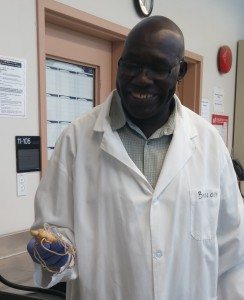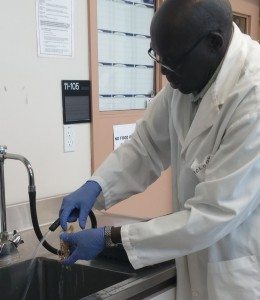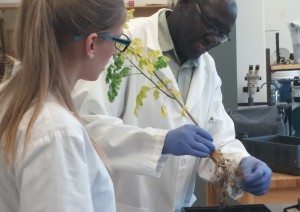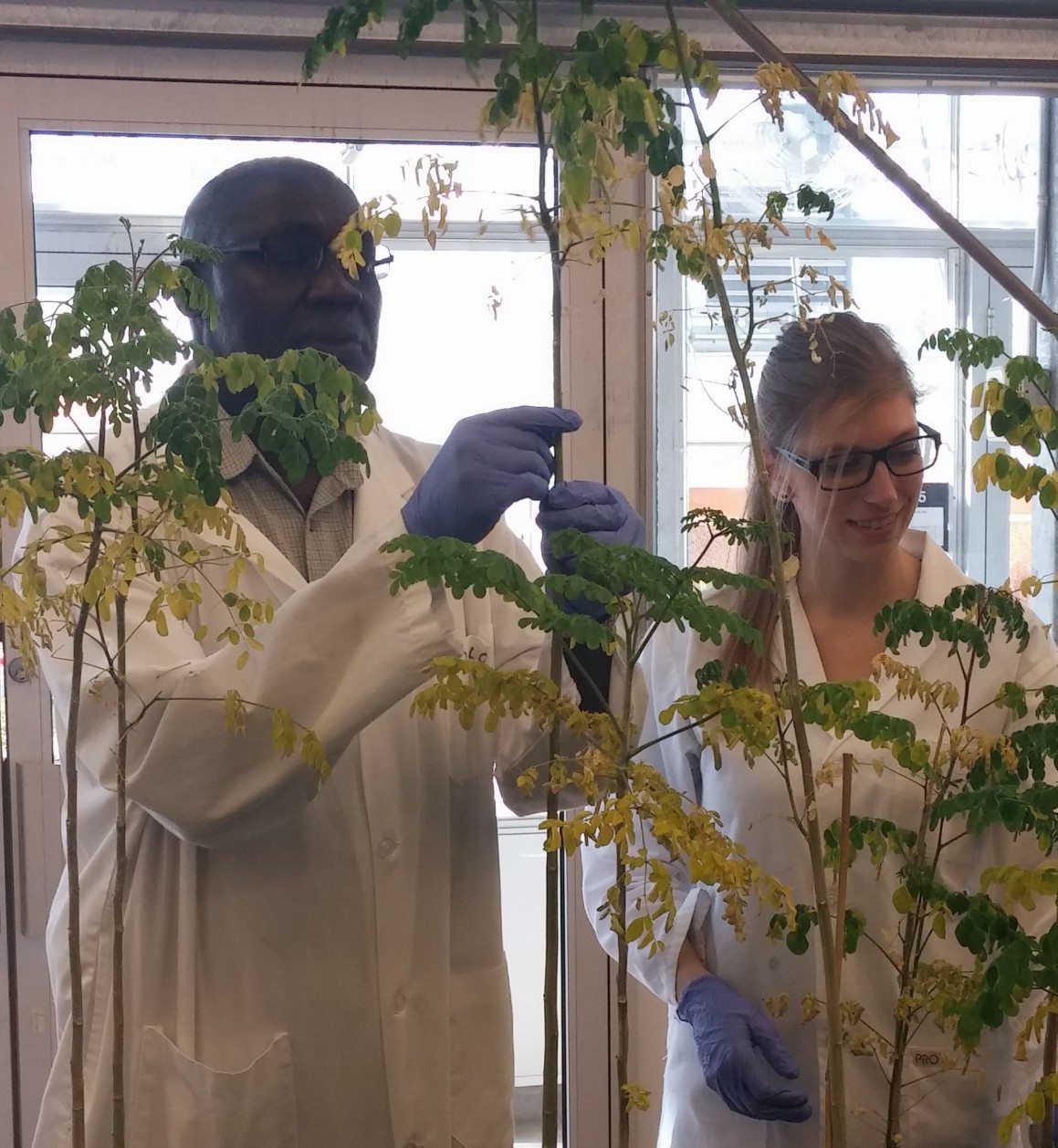A tropical tree is being grown and studied in northern BC as a possible treatment for water contaminated with deadly bacteria.

UNBC’s Dr. Chris Opio is investigating the Moringa tree (Moringa oleifera), often called the miracle tree, for anti-microbial properties. His research focuses on the roots of the tree and Opio says there are two reasons for that.
“One is, to my knowledge, there has been very little or no study on roots in relation to water purification. Secondly, for the seeds, you have to wait for a long time for the tree to mature. But with the roots, you can harvest at six months, one year and so on.”
Opio and his graduate student Chandehl Morgan wash the roots of 6 month old moringa saplings, then divide them into two groups: one will be peeled and powdered immediately, the second batch will be dried before being processed. Different concentrations of the powder will then be added to E. coli contaminated water and the results measured.

Dr. Opio says the preliminary results of this experiment should be ready by the end of this year. But that will just be the beginning of the investigative process. Opio says they will also be testing the roots of more mature moringa trees.
“We don’t know whether the chemical or the metals in the tree can change over time,” Opio says. “We don’t know yet because there’s no study that we’re aware of that has traced the chemical changes over time as the moringa grows.”
If Opio’s experiment is successful, the results could be felt around the world. According to the United Nations and World health organization, 663 million people lack access to clean drinking water. Waterborne illnesses kill 840,000 people every year.
Boiling is one easy way of sanitizing water but this requires fuel and takes time. Opio says a powder that could simply be stirred into contaminated water could easily be used in areas hit by earthquakes or hurricanes. But it’s not just the developing world that could benefit if Opio’s research succeeds. Remote communities across Canada, many of them First Nations communities, struggle to get access to safe drinking water.
Opio says the moringa can be grown in the southern United States. Trees grow quickly and mature in 10-12 years. He says the moringa’s resilience could make for a sustainable industry if the roots possess the properties he hopes they do.
“This tree is very resilient. You can cut the stem and put in the soil and it will come back. Because you can raise this from the seeds or from the cuttings, it will be a sustainable method of water purification if we can show that it can work.”

While the roots could provide a point-of-use water treatment, the seeds of the tree have shown promise as a cancer treatment and anti-microbial agent. Oil from the seeds is often used in perfume and parts of the tree have been used to treat typhoid. The leaves of the tree contain essential minerals and more calcium than milk, according to Opio.
No wonder they call it the ‘miracle tree.’
Something going on in the Prince George area you think people should know about?
Send us a news tip by emailing [email protected].






